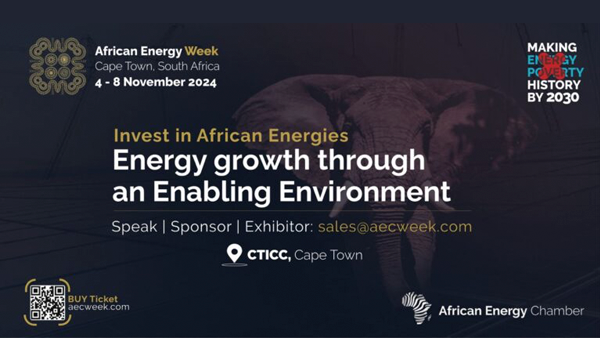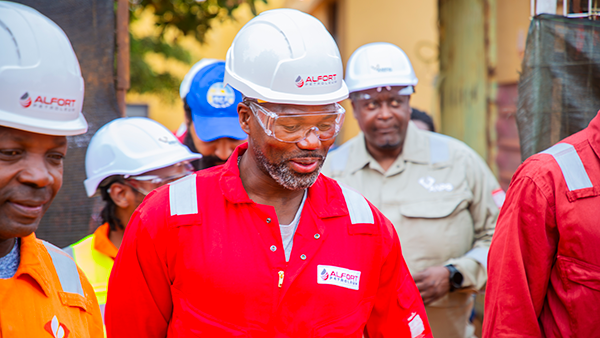
Gianni Gaspar-Martins, managing director of Alfort Petroleum, talks to The Energy Year about updates regarding Block KON 8 and the company’s strategy to deliver as a new block operator. Alfort Petroleum is a local integrated oil and gas company that works in the upstream sector and markets and distributes petroleum products.
What are the key updates regarding Block KON 8?
We signed the PSA [production sharing agreement] on August 4, 2022 and became KON 8’s operator, after which we started planning, detailing the work programme and preparing budgets for the exploration phase. We were glad to hear from the regulator and concessionaire, the ANPG, that we are among the first companies that have been able to pass this important preparation mark.
Starting in late 2023, we are going to mainly focus on our seismic acquisition programme. We are looking to invest around USD 35 million on exploration. The ANPG did an excellent job providing a very comprehensive data package. We are going to reprocess some of the seismic lines and also acquire new ones.
We’re talking about close to 400 square kilometres. 170 of these square kilometres were processed in the past, and about 200 will be acquired. All of this is in a very specific area of the block that we have identified as holding the most potential. We are also going to focus on conducting our environmental impact studies.
What is your strategy for successfully delivering as a new block operator?
The key here is to put together a good team that can work to achieve results. Some companies find it a little bit difficult to transition from a service company to an operator. Our team’s experience is actually different. We’re coming from the regulatory and operator side.
This is the first time that Alfort Petroleum will operate a block, so of course there’s some associated risks. Consequently, we are going to have to take a very cautious, conservative approach and work with companies that are even more experienced than us.
I don’t think it is a good strategy to work with other small service companies. It makes sense from the financial point of view. However, I would prefer to pay a little bit more but work with more experienced companies because we will also be able to benefit and learn from their experience. These companies also have the balance sheet to handle mistakes, should they occur.
How important are environmental concerns in Alfort Petroleum’s operations?
More than 90% of KON 8 happens to be in the Quiçama National Park. We don’t want any environmental accidents, so we want to make sure that we’re dealing with prudent companies that won’t damage the environment. They will follow protocols and best industry practices.
Furthermore, if they make a mistake, they must have the money to correct it. Right now, minimising environmental risks is our number one priority. We’re reaching the subsurface, so we want to make sure that our footprint on the surface is as minimal as possible.
By going into onshore operations, we want to prove that the energy sector can coexist with the environment. There is an unfortunate negative perception that the oil and gas industry is a dirty industry, and we would like to change it.
How has the Angolan oil and gas sector changed since the creation of the ANPG?
The concessionaire is now a lot more focused. Even in the interactions with investors, we see changes, and the concessionaire is a lot more dynamic. I think this is exactly what investors – both national and international – really need.
For example, every concession must have a financial guarantee. In the beginning we were very concerned as to how we were going to manage this guarantee. Does this mean that we have to put aside the funds for our work programme and then leave the financial guarantee untouched?
The ANPG was very open to finding ways to move forward with us in terms of finding the best solution for all parties, and they gave us the opportunity and freedom to provide feedback. This is a clear example of how close to the industry the ANPG is now.
This is not to say that previously the concessionaire wasn’t. However, I think that the agency now is a lot more dynamic and very focused on the investor, which is good.
How do you see local participation in Angola’s upstream sector evolving in the future?
I think more local companies will participate in the industry, especially thanks to the new onshore blocks that will soon be awarded. I also think that we’re going to have an increase in the number of service providers.
Entering the market as a service provider is what makes most sense for many companies. For example, us going into operatorship is because of our previous experience. For someone that has no experience starting as a service provider is an excellent entry point into the market. It’s always good and important to build a track record.
Where do you see Alfort Petroleum in five years’ time?
In five years I hope that Alfort Petroleum is one of the main operators. By then we will hopefully be a little less risk averse and capable of going into other concessions. We envision ourselves having more concessions.
Furthermore, because our work programme is very aggressive, in five years, we might be in the advanced stages of our development phase. Assuming that we hit a discovery, we might even be looking now at going international. We’re not limiting ourselves to expanding only in Angola. We’re paying close attention to what’s happening in neighbouring countries. Now is not the moment to go abroad. However, we’re eager to, so when we see the opportunity, we’ll go for it.
Fonte: The Next Energy Year


